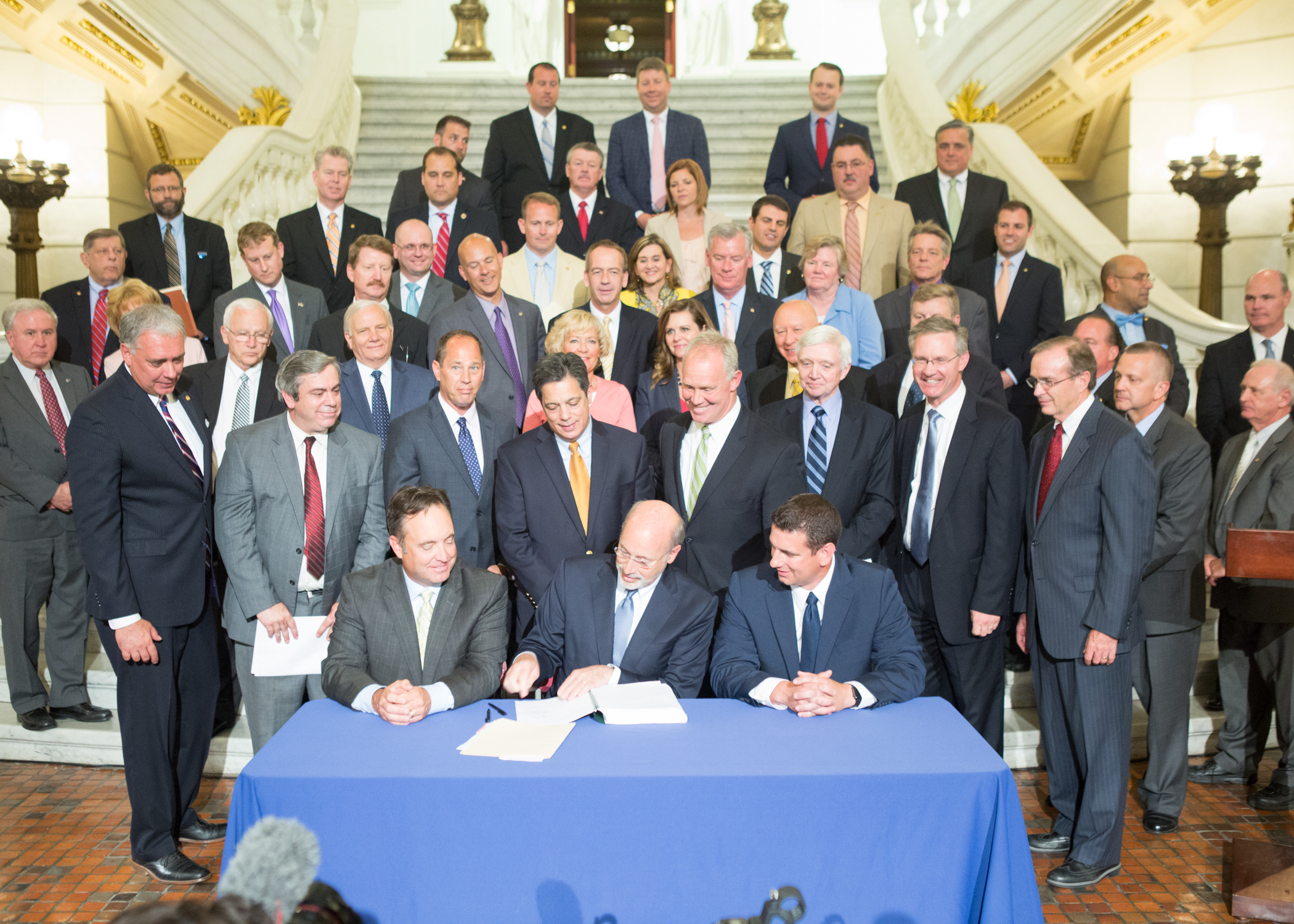Pennsylvania’s up to $74 billion public pension debt limits our state’s economic opportunities
 Photo courtesy of the House Republican Caucus Gov. Tom Wolf signs Act 5 of 2017 into law surrounded by a bipartisan group of legislators.
Photo courtesy of the House Republican Caucus Gov. Tom Wolf signs Act 5 of 2017 into law surrounded by a bipartisan group of legislators.
Pennsylvania’s public pension crisis began back in 2001 when lawmakers retroactively increased pension benefits and neglected to make required employer contribution payments. In the years, that followed economic recessions exacerbated the problem and the pension systems became greatly underfunded. This is what led to eventual spikes in pension payments for both the state and public school districts, as well as multiple credit rating downgrades. As the pension crisis mounted, Pennsylvania’s business community urged lawmakers to enact comprehensive public pension reforms that would rein in a rising unsustainable debt, shift the risk away from taxpayers and ensure the future sustainability of the systems for current and future state and public school employees.
Act 5 of 2017 took a significant step toward right-sizing the state’s two main public pension systems. The law offers state and public school employees hired after 2019 a menu of three different retirement plans – two ‘hybrid’ options that are a combination of the current, defined benefit plan and a new defined contribution plan; along with a defined contribution plan. It also includes an opt-in provision for current employees to enroll in any of these three options. While the law doesn’t tackle the unfunded liability – something that the PA Chamber will continue to advocate for – we applaud elected officials for taking responsible, bipartisan action to help ensure that the public pension systems can remain sustainable for future generations of workers. In fact, the Pew Charitable Trusts have called Act 5 (formerly S.B. 1) “one of the most – if not the most – comprehensive and impactful reform any state has implemented.”